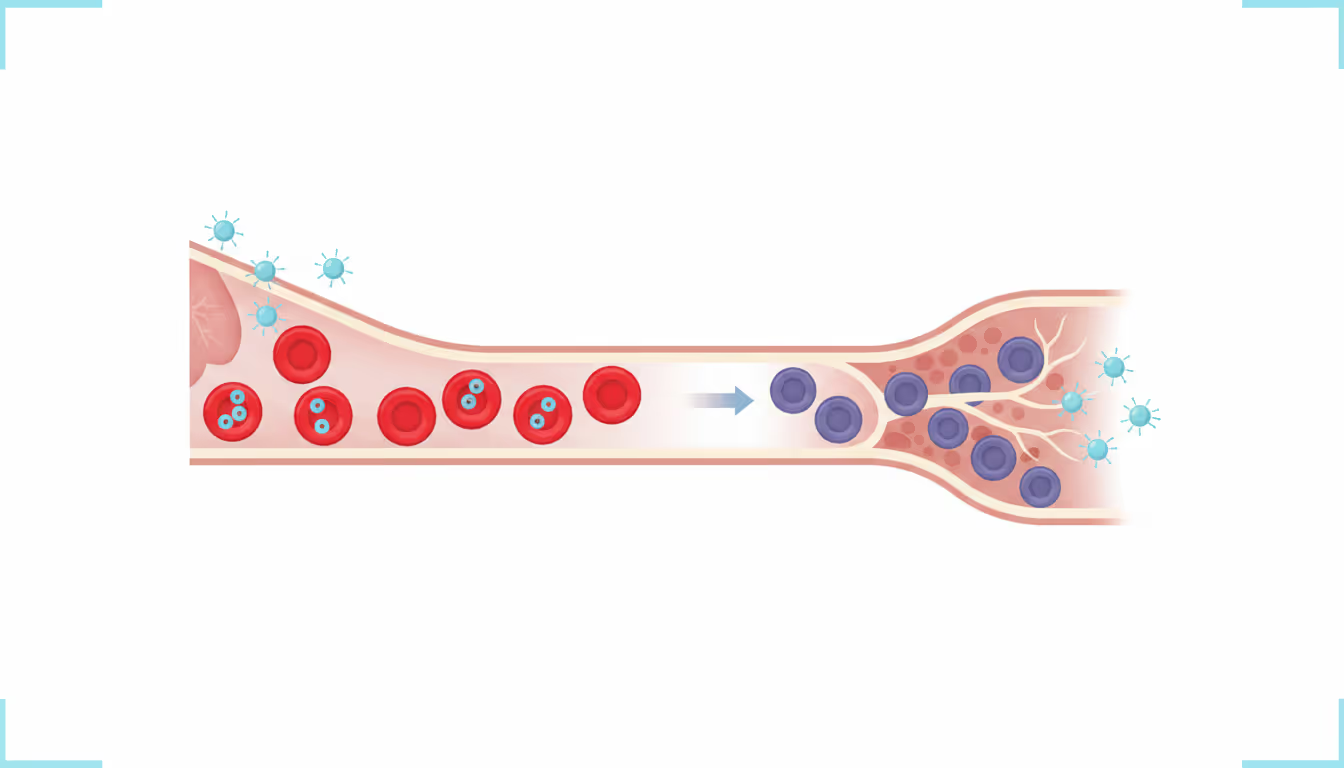
Hemoglobin is the key protein responsible for transporting oxygen in the blood. It forms a temporary, reversible bond with oxygen. When oxygenated, hemoglobin is known as oxyhemoglobin and appears bright red, while in its deoxygenated state, it is called deoxyhemoglobin and takes on a purple-blue hue. A hemoglobin molecule consists of four heme groups encircling a globin group. The iron within heme imparts a red color to the molecule, while globin is composed of two pairs of polypeptide chains. The production of each chain is governed by distinct genetic loci. Alterations in the sequence of these chains lead to abnormal hemoglobin varieties. For instance, hemoglobin S, which is present in sickle-cell disease, causes red blood cells to assume a sickle shape when oxygen levels are low. Upon the death of red blood cells, hemoglobin is released and broken down: the iron is recovered and carried to the bone marrow by a protein called transferrin, where it is reused in the creation of new red blood cells. The remaining hemoglobin is converted into bilirubin, a chemical that is secreted into bile and then into the intestine, giving feces their typical yellow-brown color.




